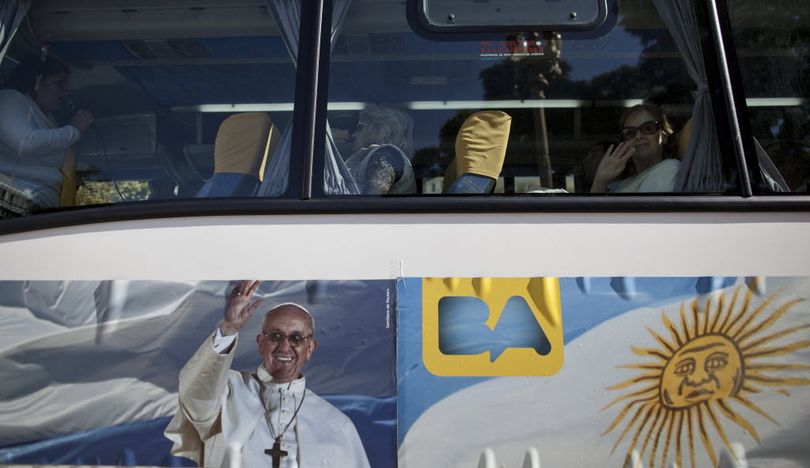Pope Francis, the anti-car urban planner

The pope is pro-transit, and for walkable, bike-able cities.
I guess this shouldn't be so surprising, given his recent the wide-reaching and very detailed encyclical on caring for the Earth and condemning modern economic systems for helping spoil the environment.
Still, Pope Francis' facility with the tenets of modern urban planning is pretty cool, considering he's a pope and all.
Cars, he says, are polluting, fossil fuel eating machines that inflict suffering on people. He prefers public transit.
In his words:
The quality of life in cities has much to do with systems of transport, which are often a source of much suffering for those who use them. Many cars, used by one or more people, circulate in cities, causing traffic congestion, raising the level of pollution, and consuming enormous quantities of non-renewable energy. This makes it necessary to build more roads and parking areas which spoil the urban landscape. Many specialists agree on the need to give priority to public transportation. Yet some measures needed will not prove easily acceptable to society unless substantial improvements are made in the systems themselves, which in many cities force people to put up with undignified conditions due to crowding, inconvenience, infrequent service and lack of safety.
He also calls on urban planners to make cities beautiful, and for the people that live in them:
Given the interrelationship between living space and human behaviour those who design buildings, neighbourhoods, public spaces and cities, ought to draw on the various disciplines which help us to understand people’s thought processes, symbolic language and ways of acting. It is not enough to seek the beauty of design. More precious still is the service we offer to another kind of beauty: people’s quality of life, their adaptation to the environment, encounter and mutual assistance.
So there you have it. The pope is a wonk.
H/T Wonkblog
